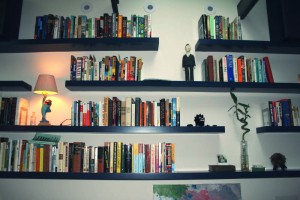Different Types of Literature

Many best seller lists, like the one of the New York Times, divide literature in two parts: Fiction and non-fiction. Yet, this doesn’t even grasp a fraction of the diversity that is modern day (and ancient) literature. Both branches, the “fiction” one as well as the “non-fiction” one, consist of many different forms and types of literature.
Knowing these different kinds are, of course, important for your own reading pleasure, and for recommendations made to others. Yet, when getting creative yourself, it’s also important to find out which type the story or tale you want to tell should have.
Following, we give you a by no means exhaustive or complete list of literary work in both the fictional and non-fictional field.
Types of Literature
Fictional
Anthology – compilation of different works; also with background information about time period, author, intention, etc.
Classic – fictional books that became part of the accepted literary canon; often taught in schools
Comics/Graphic Novel – fiction told with the visual aid of pictures
Crime/Detective/Mystery – fiction about committing a crime, solving the crime, and the aftermath
Drama – Fiction written in a way that it could be staged
Fable – narrative with a moral; usually involving animals as characters
Fairy Tale – story about mythical creatures; can contain morals; usually for children
Fanfiction – fiction created by a fan based on a series, movie, novel, etc.
Fantasy – fiction that takes pace in other/fantastical worlds, involving suspension of reality
Horror – fiction that evolves around horrific and frightening events, either for the reader or the characters
Legend – story that has existed over centuries; based on facts but “spiced up” by fiction
Myth – story that is regarded as sacred and oftentimes as true; involves Gods or supernatural beings
Poetry – verses that usually rhyme and follow certain patterns
Romance – fiction with a primary focus on love and relationships; can be tragic
Satire – humorous take on a person, political, or economic situation; can be either hilarious or quite dark
Science Fiction – stories set around actual or imaginative science and developments
Non-Fictional
Autobiography – story of a person’s life written down by the person themselves
Biography – story of a person’s life written down by another author
Cookbook – collection of receipts
Diary – dated notions of thoughts, opinions, and happenings during the day of the author; private
Dictionary – list of words, their meaning, and – depending on the language – a translation
Encyclopedia/Lexicon – compilation of expressions, terms, objects, and other matters with a detailed description, history, etymology, etc.
Guide – collection of references or information on a certain topic
History – collection of attested happenings in the past, political backgrounds, economic development, etc. over time
Journal – similar to a diary, but open for other people but the author to read
Science – explanation of matters of science like math, biology, chemistry, physics, etc.
Self-Help – guide to self-induced improvement in all kinds of economic, emotional, inteleectual, etc. matters
Travel – compilation of a country, region, or city with facts, information, tips, maps, etc.
